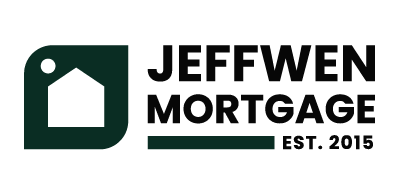UndeUnderstanding Reverse Mortgages: A Comprehensive Guide
A reverse mortgage is a unique financial product designed for homeowners aged 62 and older. Unlike a traditional mortgage, where the homeowner makes monthly payments to the lender, a reverse mortgage allows homeowners to convert part of their home equity into cash without having to sell their home or make monthly payments. The most common type of reverse mortgage is the Home Equity Conversion Mortgage (HECM), which is insured by the Federal Housing Administration (FHA).
Key Features of Reverse Mortgages
- Eligibility Requirements: To qualify for a reverse mortgage, homeowners must be at least 62 years old, own their home outright or have a low mortgage balance, and live in the home as their primary residence.
- Payment Options: Homeowners can receive reverse mortgage proceeds as a lump sum, monthly payments, a line of credit, or a combination of these options, providing flexibility in how they access their funds.
- No Monthly Mortgage Payments: Borrowers are not required to make monthly mortgage payments. Instead, the loan balance, which includes interest and fees, is repaid when the homeowner sells the home, moves out permanently, or passes away.
- Non-Recourse Loan: Reverse mortgages are non-recourse loans, meaning that the homeowner or their heirs will never owe more than the home’s value when the loan is repaid, even if the loan balance exceeds the home’s value.
- Counseling Requirement: Prospective borrowers must undergo mandatory counseling with a HUD-approved counselor to ensure they fully understand the implications of a reverse mortgage.
Advantages of Reverse Mortgages
- Supplement Retirement Income: Reverse mortgages can provide a steady stream of income, helping retirees cover living expenses, medical costs, or other financial needs.
- Retain Homeownership: Homeowners can access their home equity without selling their home, allowing them to continue living in their familiar surroundings.
- Flexible Payment Options: Borrowers can choose how they receive their funds, tailoring the reverse mortgage to their financial situation.
Disadvantages of Reverse Mortgages
- High Fees and Costs: Reverse mortgages can have higher upfront costs, including origination fees, mortgage insurance premiums, and closing costs, which can reduce the net proceeds available to the borrower.
- Impact on Heirs: Since the loan balance increases over time, there may be less equity left for heirs. Heirs must make a decision on what to do with the home upon the passing of the borrowers of the reverse mortgage.
- Ongoing Obligations: Homeowners must continue to pay property taxes, homeowners insurance, and maintenance costs. Failure to do so can result in loan default and having the loan to be called due.
How to Qualify for a Reverse Mortgage
- Age Requirement: Ensure you meet the minimum age requirement of 62 years.
- Primary Residence: The home must be your primary residence, and you must reside in it for the majority of the year.
- Home Equity: Have significant home equity, either by owning your home outright or having a low mortgage balance that can be paid off with reverse mortgage proceeds.
- Financial Assessment: Undergo a financial assessment to demonstrate your ability to pay property taxes, insurance, and maintenance costs. A residual cash flow analysis is determined on income less credit obligations, and other various estimated costs such as maintenance and repairs.
Conclusion
A reverse mortgage can be a valuable financial tool for older homeowners looking to supplement their retirement income and access their home equity without selling their home. While reverse mortgages offer several benefits, including no monthly payments and flexible disbursement options, it’s crucial to understand the associated costs and potential impact on heirs. By meeting the eligibility requirements, undergoing mandatory counseling, and carefully considering your financial needs, you can make an informed decision about whether a reverse mortgage is right for you.
